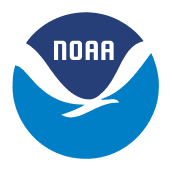New release of a state-of-the-art physics package for weather models
 GSL and the Developmental Testbed Center (DTC) have achieved a milestone with the release of the Common Community Physics Package (CCPP) v7.0.0! The Common Community Physics Package (CCPP) is a state-of-the-art infrastructure designed to facilitate community-wide development of atmospheric physics parameterizations across different host weather and climate models. The CCPP consists of CCPP Physics and the CCPP Framework. CCPP is used widely in research, development for operational transition, and NOAA operations.
GSL and the Developmental Testbed Center (DTC) have achieved a milestone with the release of the Common Community Physics Package (CCPP) v7.0.0! The Common Community Physics Package (CCPP) is a state-of-the-art infrastructure designed to facilitate community-wide development of atmospheric physics parameterizations across different host weather and climate models. The CCPP consists of CCPP Physics and the CCPP Framework. CCPP is used widely in research, development for operational transition, and NOAA operations.
The CCCP Physics is a library of physical parameterizations. Physical parameterizations are assumptions modelers make to describe the overall effect of a weather feature such as turbulence or cloud microphysics, on larger-scale atmospheric processes. The numerical weather prediction community continuously works to improve these parameterizations, a foundational piece of atmospheric models. This version contains 23 primary parameterizations representing a variety of processes such as radiation, ozone production and loss, microphysics, convection, and surface flux exchanges. It also contains simple representations of atmospheric conditions near the ocean and sea ice surfaces.
The CCPP Framework is an infrastructure that connects the physics parameterizations to host models using a well-documented set of interface rules and strict code management. This provides a clearing house for physics development, exchange of clearly versioned parameterizations, and transition.A key aspect of the CCPP is its ability to be used by multiple host models.
This enables synergistic collaboration among groups across various institutions working on a variety of models. For example, the CCPP is part of the Unified Forecast System (UFS) and is included in the NOAA operational Hurricane Analysis and Forecast System (HAFS) versions 1 and 2. CCPP is slated for use in all upcoming NOAA global and limited-area UFS applications for operations. Similarly, the CCPP has been integrated into the Navy Environmental Prediction System Using a Nonhydrostatic Engine (NEPTUNE) model and is undergoing testing for the upcoming transition to operations. The prospects for shared modeling infrastructure between NOAA, Navy, NCAR, and other national and international institutions open doors for promising scientific collaborations in Earth system modeling.
This latest release was the work of the Developmental Testbed Center (DTC) and GSL.
For questions or comments about the CCPP and the SCM, please use our Github discussions at https://github.com/NCAR/ccpp-physics/discussions. When using CCPP with the UFS, you can also direct your questions to the UFS Github discussions.
The DTC GSL CCPP release team: Ligia Bernardet, Grant Firl, Man Zhang
Our Mission
Lead research and directed development through the transition of environmental data, models, products, tools, and services to support commerce, protect life and property, and promote a scientifically literate public.
Research Areas
Organizational Excellence, Earth System Prediction, Advanced Technologies, and Decision Support are the foundation to achieving the GSL Grand Challenge: Deliver actionable global storm-scale prediction and environmental information through advanced technologies to serve society.
Global Systems Laboratory

